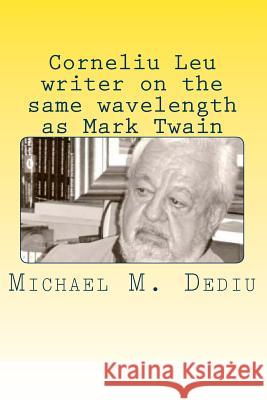Corneliu Leu - writer on the same wavelength as Mark Twain: An American viewpoint » książka
Corneliu Leu - writer on the same wavelength as Mark Twain: An American viewpoint
ISBN-13: 9781939757265 / Angielski / Miękka / 2015 / 246 str.
Corneliu Leu - writer on the same wavelength as Mark Twain: An American viewpoint
ISBN-13: 9781939757265 / Angielski / Miękka / 2015 / 246 str.
(netto: 174,68 VAT: 5%)
Najniższa cena z 30 dni: 183,92
ok. 16-18 dni roboczych
Bez gwarancji dostawy przed świętami
Darmowa dostawa!
Rene Descartes (1596 - 1650) elucidated the idea of a separation between the objective reality and the subjective reality, or, in other words, between the exterior world and the interior world. The pre-Cartesian philosophy and literature did not show much interest in this separation between interior and exterior, or between subjective and objective. For example, Aristotle (384 BC - 322 BC) gives the impression to see a harmony between the exterior objects (real forms), feelings and rational thinking (potential form). But before him Plato (circa 428 BC - 347 BC) does not see a harmony between interior and exterior, because the truth and reality can only be found in interior, through memory and rational thinking. It seems that the oriental literature (Tsurayuki, Basho), as the pre-Cartesian literature, does not make a precise distinction between subjective and objective. On the other hand, writers and artists from Europe and America (Dickens, Twain, Hugo, Goethe, Solzhenitsyn, Cervantes, Manzoni, Eminescu) were trying to convince the public to see the world as they were seeing it. Corneliu Leu, in the same Cartesian spirit, uncovers for us a fascinating world that appears live and vibrant in front of our eyes. His books clearly are on the same wavelength with those of Mark Twain, appearing from the depth of the European and American being, with grandeur which flabbergasts even the most refined reader. In this book we chronologically present happenings from Leu's and Twain's lives, as well as many other interesting facts, and conclude with samples of Leu's works. The wealth of the events, personages and places from Corneliu Leu's books, the same like those of Mark Twain's books, represent a valorous contribution to the European and American history and cultural heritage, and will remain as an eloquent testimony for the future generations."











